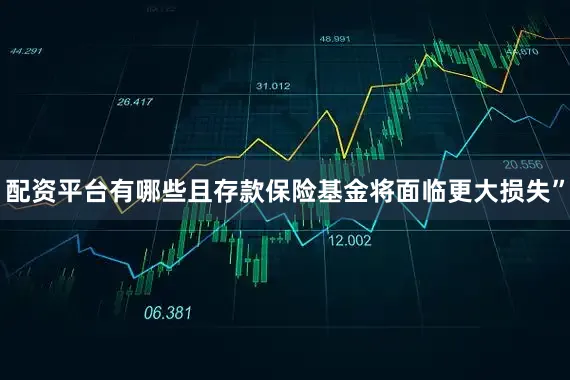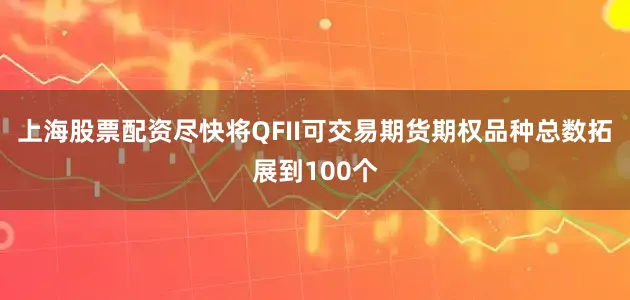

TEL AVIV, Israel (AP) Israeli Prime Minister Benjamin Netanyahu likes to remind his country and the world that in the disorienting first days after Hamas Oct. 7, 2023, attack, he predicted Israel would change the Middle East.
Now, 20 months later, a regionwide war has all but crushed the Palestinian militant group Hamas in Gaza, thrashed Hezbollah in Lebanon, toppled Bashar Assad in Syria and delivered a harsh blow to archenemy Iran .
Its an achievement that Netanyahu, who has long railed against what he dubbed Tehrans tentacles of terror, will likely claim as a personal win and a boost for his battered legacy .
One by one, Irans network of regional allies has been neutralized, defeated or badly weakened, dismantling a ring of hostile armed actors along Israels borders and reshaping the region.
But the changes came at an enormous cost for Israel, which suffered the deadliest attack in its history on Oct. 7 and faces deep international isolation over its response , which has killed tens of thousands of Palestinians and made Gaza virtually unlivable. The strategic success, while stunning, leaves many questions about the future of the region.
These changes are a major blow to the Iranian axis, said Meir Litvak, a senior research associate at the Alliance Center for Iranian Studies, a Tel Aviv think tank. Does it change the Middle East entirely? No, because there are many problems that havent been solved and wont be solved by this change.
Netanyahu has emphasized
Irans allies as a threat
In his relentless crusade against Iran and its nuclear program, Netanyahu has long highlighted the Islamic Republics yearslong campaign to deepen its influence across the Middle East by arming and funding proxies in strategic locations.
Irans goons in Gaza, its lackeys in Lebanon, its Revolutionary Guards on the Golan Heights are clutching Israel with three tentacles of terror, Netanyahu told Congress in a 2015 speech. In that speech, he railed against the Obama administrations emerging nuclear deal with Iran, which did not address its proxies.
If Irans aggression is left unchecked, more will surely follow, he said.
Netanyahu failed to prevent that nuclear deal from being signed, and there appeared to be little Israel could do to keep Iran and its allies in check. U.S. administrations slapped sanctions against Iran and its allies, while Netanyahu stepped up attacks in Syria against Iranian influence and arms transfers, but the axis persisted.
Iran has long used regional allies in its conflict with Israel
Since the Islamic Revolution in 1979, Iran has sought to export its ideals to other parts of the region.
Palestinian militant groups, including Hamas, enjoyed Iranian funding and military support over the years. The Shiite Hezbollah has been a key ally of Irans for decades. Assad, the former Syrian president and linchpin of Irans foreign policy, allowed shipments of arms destined for Hezbollah to pass through his territory. The Iranian-backed Houthi rebels have launched missiles and drones at Israel since the start of the war in Gaza.
Hamas launched its Oct. 7 attacks with the hope that the stunning assault would trigger a response from the so-called ring of fire and lead to the intervention of Hezbollah and Iran.
The result was the exact opposite, a total unraveling of what appeared to be an ironclad alliance.
A domino effect that paved the way to the war with Iran
Although Hamas continues to fight Israel and hold dozens of Israeli hostages, its leadership has been wiped out and its strength is a small fraction of what it once was.
Hezbollah and the Houthis joined the fighting after the attacks but had no major bearing on Israels ability to respond to Hamas.
In late September, Israel launched a dizzying campaign against Hezbollah. What began with a covert operation that detonated explosive beepers and walkie-talkies carried by Hezbollah members led to the groups total decapitation, including the killing its longtime leader, Hassan Nasrallah, when Israel dropped dozens of bombs on his hideout.
With Hezbollah neutralized, Sunni Syrian rebels seized the moment to launch an insurgency, reaching the capital in days and toppling Assad , who had enjoyed the Lebanese militant groups protection in previous crises.
Hezbollahs weakness paved the way for Israel to strike Iran on two occasions last year, taking out key air defenses and clearing the way for the recent air war with Iran. Hezbollah, a major Iranian investment that once served as a deterrent against an Israeli strike on Iran, stayed entirely out of the war.
With Irans strategy in tatters, the Houthis may not be able to keep up with their attacks.
There is no doubt that Iranian proxies, the ring of fire, the axis of terror, the axis of resistance, whatever you want to call it, doesnt exist anymore, said Nadav Eyal, an Israeli commentator.
Netanyahus vow to change the region came at a staggering cost
Netanyahu, who has watched his political fortunes plummet since Hamas initial attack, has been buoyed by each of those shifts in the region, though some were products of chance.
We would not have gotten here without Oct. 7, said David Makovsky, director of the program on Arab-Israel Relations at the Washington Institute for Near East Policy. Without Hamas initial attack and the chain reaction it set off, Israel may not have succeeded in dismantling the Iranian axis at all.
And the shifts could backfire. Iran, without its first line of defense, may now feel vulnerable and could rush toward obtaining nuclear weapons in response.
Still, Netanyahu can likely count on an electoral boost from the regional changes. Israelis can feel relieved that the major threats that long encircled them, as well as the more distant Iran, have been subdued for now.
But Netanyahus pledge to change the Middle East came at a staggering cost. Israeli society is forever changed by Hamas attacks. The countrys international standing has been badly, perhaps irreparably, damaged over devastation it has wrought in Gaza. And the underlying issue that set off the war in the first place the Israeli-Palestinian conflict remains further than ever from resolution.
There is a major change here without a doubt, said Litvak. But that problem doesnt disappear.
以色列特拉维夫(美联社)——以色列总理本雅明·内塔尼亚胡时常提醒国民和国际社会:在哈马斯2023年10月7日发动袭击后那段令人迷茫的最初日子里,他曾预言以色列将『改变中东格局』。
如今,20个月过去,这场席卷整个地区的战争几乎摧毁了加沙地带的巴勒斯坦激进组织哈马斯,重创了黎巴嫩真主党,颠覆了叙利亚巴沙尔·阿萨德政权,并对宿敌伊朗予以沉重打击。
这一成就很可能会被长期抨击德黑兰所谓'恐怖触手'的内塔尼亚胡视为个人胜利,并为其受损的政治遗产注入一剂强心针。
伊朗的地区盟友网络正逐个被瓦解、击败或严重削弱,这拆除了沿以色列边境的一圈敌对武装势力,重塑了该地区格局。
但这些转变是以色列付出巨大代价换来的——该国在10月7日遭遇了史上最致命的袭击,又因其军事回应导致数万名巴勒斯坦人丧生、加沙地带几乎沦为废墟,从而陷入严重的国际孤立。尽管战略成果令人震惊,但该地区的未来仍存在诸多悬而未决的问题。
特拉维夫智库伊朗研究联盟中心的高级研究员梅厄·利特瓦克表示:"这些变化对伊朗轴心是一个重大打击。"他补充道:"这会彻底改变中东吗?不会,因为还有许多问题尚未解决,也不会因这一变化而得到解决。"
内塔尼亚胡强调
伊朗盟友构成威胁
内塔尼亚胡在长期对抗伊朗及其核计划的行动中,始终强调伊斯兰共和国多年来通过武装和资助战略地区的代理人,以扩大其在整个中东地区的影响力。
以色列总理内塔尼亚胡在2015年对美国国会的演讲中称:"伊朗在加沙的暴徒、在黎巴嫩的爪牙、在戈兰高地的革命卫队,正用三条恐怖触手钳制着以色列。"他在该演讲中强烈谴责奥巴马政府与伊朗达成的核协议草案未遏制其代理人势力。
他表示:“如果对伊朗的侵略行为置之不理,势必会引发更多类似事件。”
内塔尼亚胡未能阻止该核协议的签署,以色列似乎也无力遏制伊朗及其盟友。美国政府虽对伊朗及其盟友实施制裁,内塔尼亚胡也加强了在叙利亚针对伊朗影响力及武器输送的打击,但这一联盟体系依然持续存在。
伊朗在与以色列的长期冲突中,一直借助地区盟友的力量。
自1979年伊斯兰革命以来,伊朗一直试图将其理想“输出”到该地区其他部分。
包括**哈马斯**在内的巴勒斯坦武装组织多年来一直获得伊朗的资金支持和军事援助。什叶派组织**真主党**数十年来都是伊朗的重要盟友。叙利亚前总统**巴沙尔·阿萨德**作为伊朗外交政策的核心人物,曾允许运往真主党的武器过境其领土。而自加沙战争爆发以来,伊朗支持的**胡塞武装**已多次向以色列发射导弹和无人机。
哈马斯发动10月7日袭击时,曾希望这场震惊世界的突袭能引发所谓“火环”地区的连锁反应,并促使黎巴嫩真主党和伊朗介入冲突。
结果却恰恰相反,这个看似坚不可摧的联盟彻底分崩离析。
为伊朗战争铺路的连锁反应
尽管哈马斯仍在与以色列交战并扣押数十名以色列人质,但其领导层已被歼灭,实力也大不如前。
真主党和胡塞武装在袭击发生后加入战斗,但并未对以色列反击哈马斯的能力产生重大影响。
9月下旬,以色列对黎巴嫩真主党发动了一场令人目眩的攻势。这场行动始于一项秘密任务——引爆真主党成员携带的爆炸传呼机和对讲机,最终导致该组织遭遇全面斩首行动。以色列向真主党长期领导人哈桑·纳斯鲁拉的藏身处投下数十枚炸弹,致其身亡。
随着真主党势力被削弱,叙利亚逊尼派反叛武装抓住时机发动叛乱,数日内便攻至首都并推翻阿萨德政权。此前数次危机中,阿萨德一直受到这个黎巴嫩武装组织的庇护。
真主党的式微为以色列去年两次打击伊朗铺平了道路,使其成功摧毁关键防空设施,并为近期与伊朗的空战扫清障碍。作为伊朗的重要战略资产,真主党曾是以色列袭击伊朗的威慑力量,但在此次冲突中全程未参与作战。
随着伊朗的战略支离破碎,胡塞武装可能无法持续发动攻击。
以色列评论员纳达夫·埃亚尔表示:“毫无疑问,伊朗的代理人——无论你称之为‘火环’、‘恐怖轴心’还是‘抵抗轴心’——都已不复存在。”
内塔尼亚胡改变该地区的誓言付出了惊人的代价
自哈马斯发动首次袭击以来,内塔尼亚胡的政治运势急转直下,但中东地区的每次局势变化都为他提供了喘息之机——尽管其中部分转变纯属偶然。
华盛顿近东政策研究所阿拉伯-以色列关系项目主任戴维·马科夫斯基表示:“如果没有10月7日的事件,我们不会走到今天这一步。”他指出,若非哈马斯的首次袭击及其引发的连锁反应,以色列可能根本无法成功瓦解伊朗轴心。
这种转变可能适得其反。失去第一道防线的伊朗如今或许会感到脆弱,并可能因此加速获取核武器作为回应。
尽管如此,内塔尼亚胡很可能因地区局势变化而获得选举助力。以色列人可以暂时松一口气,长期环绕他们的重大威胁以及更遥远的伊朗,目前都已被压制。
然而内塔尼亚胡改变中东的承诺付出了惊人代价。哈马斯的袭击永远改变了以色列社会。该国因在加沙造成的破坏而国际声誉严重受损,甚至可能无法挽回。而引发这场战争的根本问题——巴以冲突——比以往任何时候都更难得到解决。
“毫无疑问,这里发生了重大变化,”利特瓦克说道,“但问题并未就此消失。”
融正配资-股票配资平台推荐-专业配资论坛资讯-石家庄配资公司提示:文章来自网络,不代表本站观点。
- 上一篇:配资炒股理财5.纳税情况个人所得税的缴纳情况也会被考虑
- 下一篇:没有了








